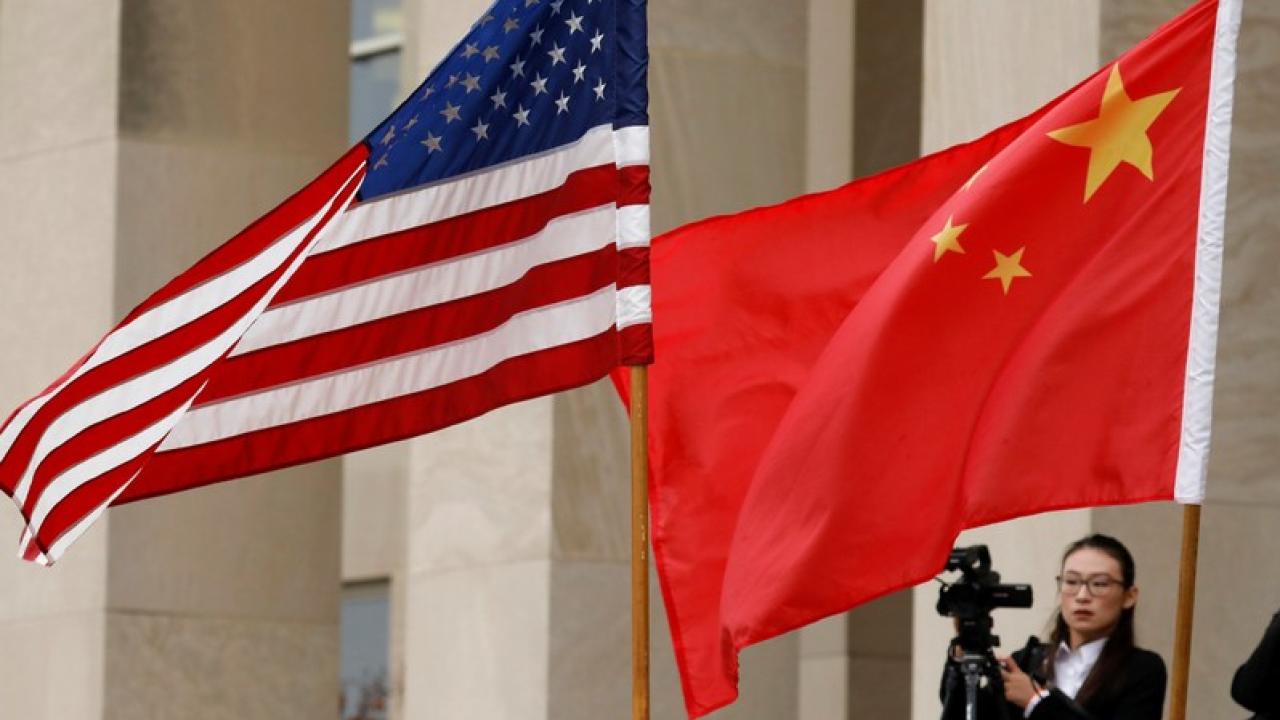
Beijing accuses Washington of 'bullying' and "trampling" the principles of the market and the rules of international trade.
The Chinese Government considers that the United States' rhetoric about China's industrial overcapacity only seeks to practice protectionism and subdue competition from other countries and has expressed its opposition to measures such as the imposition of tariffs to protect strategic sectors of its imports, warning that it will take the necessary actions to protect the legitimate rights and interests of the country.
"I would like to tell you that China opposes unilateral tariffs that violate WTO rules and will take all necessary measures to defend its legitimate rights and interests," Chinese Foreign Ministry spokesperson Wang said at a press conference. Wenbin.
During his speech to the media, the Chinese official has described the US narrative regarding China's excess capacity as an attempt to subdue industrial competition by other countries and "practice protectionism and trample on market principles and rules of international trade" in the name of fair competition. "This is nothing more than harassment," he added.
In this sense, he has argued that, according to Washington's logic, US subsidies are "investments in critical industries", while subsidies from other countries are considered "worrying unfair competition" and, although US exports . with such comparative advantage constitute "free trade", the exports of the rest with comparative advantage are signs of "overcapacity."
"There is a Chinese saying that explains this logic: 'The magistrate is allowed to light a fire but forbids everyone else to light candles.' Or, to use an American expression: 'Do as I say, not as I do,'" he summarized. .
On this issue, the Chinese spokesperson pointed out that the rapid growth of China's new energy industries, including electric vehicles, lithium batteries and photovoltaic products, is based on continuous technological innovation, complete industrial and supply chains and total competition in the market.
In this way, he has stated that the competitive advantage of Chinese products is the result of the combination of comparative advantage and market laws, not of so-called 'subsidies'.
"In contrast, in recent years, the United States enacted the CHIPS and Science Act and the Inflation Reduction Act to directly intervene in the allocation of market resources through direct and indirect subsidies totaling hundreds of thousands of millions of dollars," he recalled.
"It is the United States that largely subsidizes its industries," he accused, adding that in the end subsidies do not guarantee industrial competitiveness and protectionism "does not feed true business champions."
In this sense, he has pointed out that the new Chinese energy industries "are what the world economy needs for a green transition" and serve the interests of China, the United States and the entire world, which is why he has urged the United States to abandon "your hypocrisy and double standards" and do not make the same mistake of resorting to protectionism.
The White House confirmed this Tuesday the imposition of significantly higher tariffs on imports of products from strategic industries, such as semiconductors, energy and new technologies, from China worth US$ 18 billion, which will even quadruple in the case of electric vehicles, going to 100% from 25%, to protect US companies and workers from "China's unfair trade practices."
The US Administration has assured that the measures adopted "to counter China's unfair trade practices" are carefully targeted at strategic sectors in which the United States is making "historic investments" to create and maintain well-paying jobs.
In this regard, Washington has expressed its willingness to continue working with its partners around the world to strengthen cooperation and address shared concerns about China's unfair practices.









